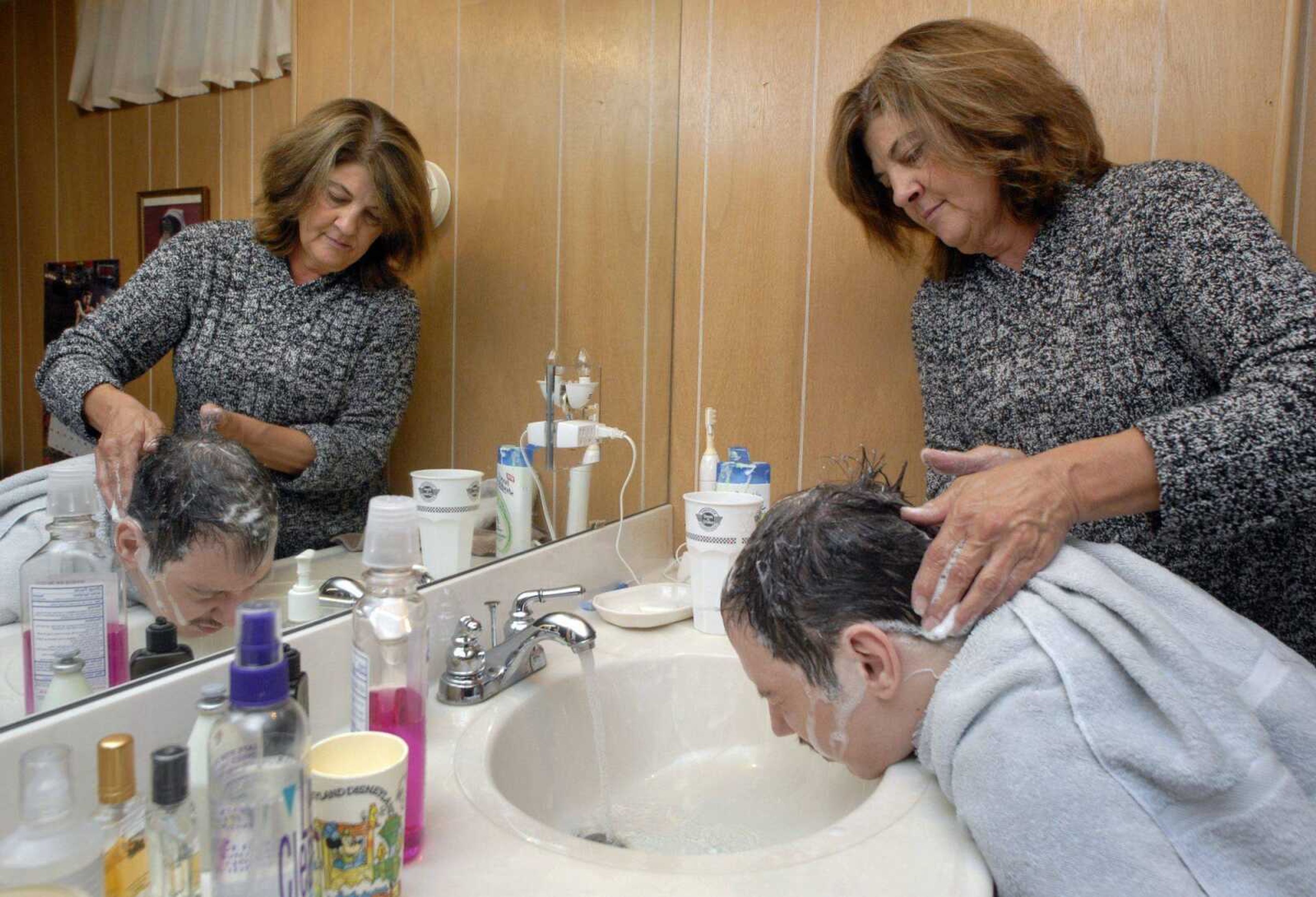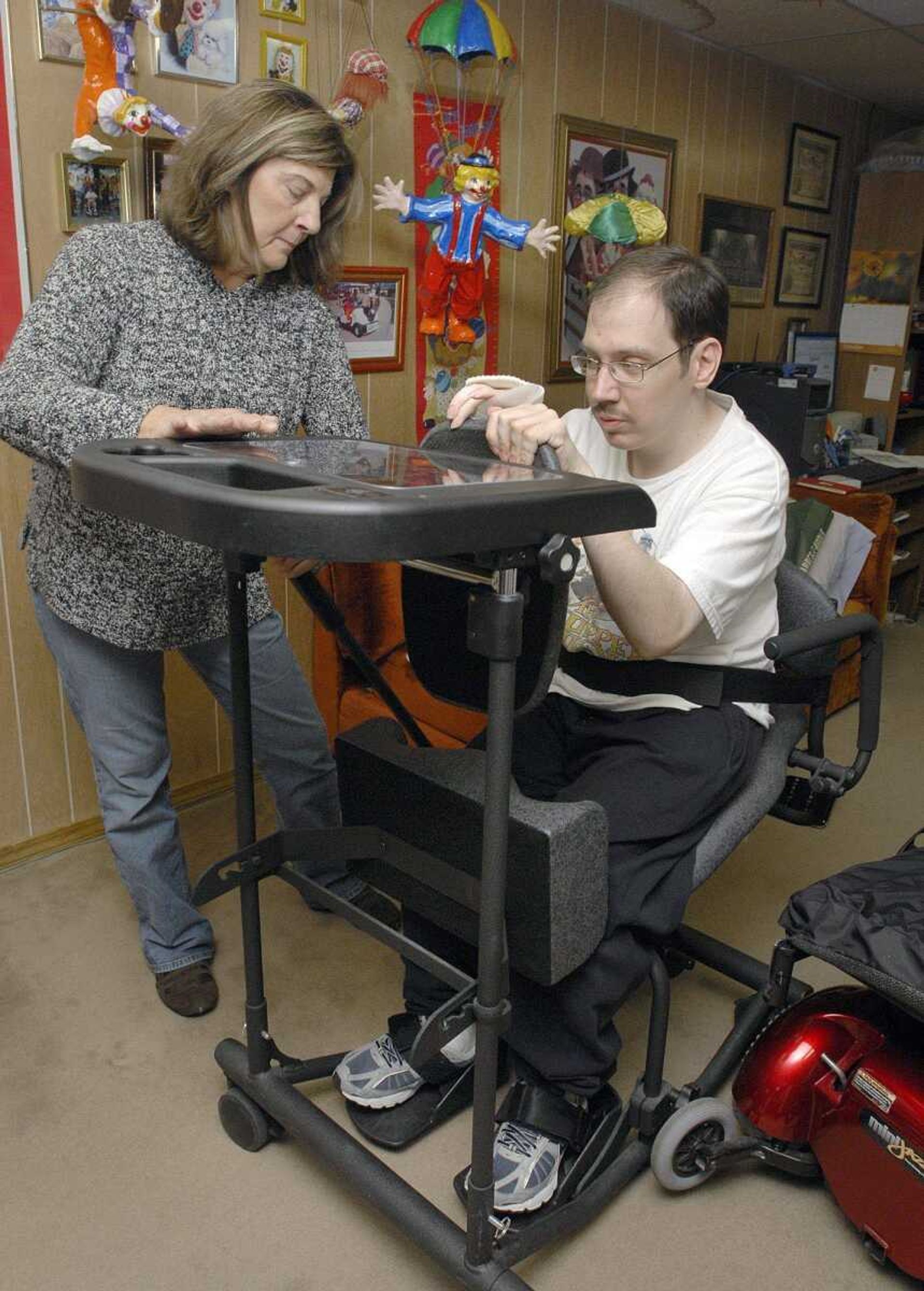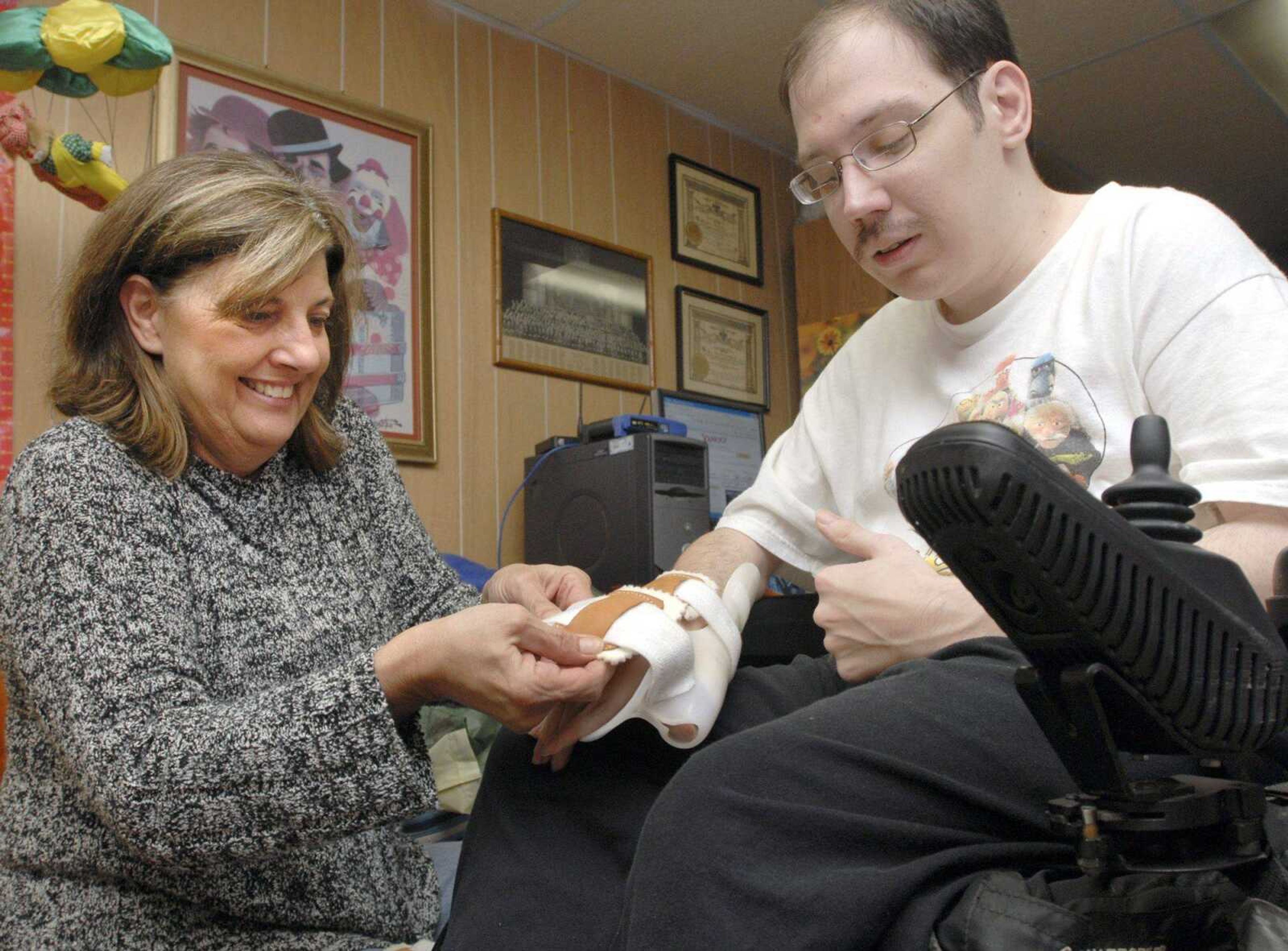Quality Home Care Act -- Proposition B on the Nov. 4 ballot -- questioned by some voters
Lois Unfer used a series of home health workers over the course of nearly three years. She has osteoporosis and spinal stenosis, a degenerative disc disease, and uses a walker. Her caregivers prepared meals, helped her bathe, dress and get to medical appointments...
Lois Unfer used a series of home health workers over the course of nearly three years. She has osteoporosis and spinal stenosis, a degenerative disc disease, and uses a walker. Her caregivers prepared meals, helped her bathe, dress and get to medical appointments.
The best of them remain dear to Unfer, 81, of Cape Girardeau. Memories of the worst cause a scowl to flash across her face.
"The worst didn't know how to help people. Didn't know how to cook cereal," she said. "Sure, it's easy to give someone their pills, but if I had to go to the doctor's office, I was always late. I'm the type who likes to be 15 minutes early."
Before Wednesday, she hadn't heard much about Missouri's Proposition B, which will be on the ballot Nov. 4. Now she plans on learning more about it before Election Day.
Helen Howard, an independent in-home care worker in Cape Girardeau, said, "Right now I don't have any idea what it's about." Howard has been an in-home worker more than 10 years.
If approved, Proposition B, also called the Quality Home Care Act, would authorize an 11-member Quality Home Care Council, requiring six of them to be people with disabilities. The council, which would be funded by more than $500,500, would establish a statewide registry of screened caregivers, create a backup worker system, offer training and career opportunities and negotiate with the workers union, if one is formed.
Affects 8,000 workers

Prop B affects about 8,000 independent home health workers who are paid by Medicaid, according to Krissi Jimroglou, communications coordinator for Missourians for Quality Home Care, the group that put Prop B on the ballot. Jimroglou also is a senior communications specialist for the Washington, D.C.-based Service Employees International Union.
"Whether you're a family member or outside provider, your own livelihood is affected by decisions made in Jefferson City," she said. "A lot of people would like to care for a family member, but they have to pay the bills. This entraps them in poverty."
Jimroglou said the cost of home care is about $9,000 a year, while nursing homes charge $24,000.
Opponents say the cost for care will increase as a result of the initiative, which is partly intended to increase wages and benefits.

"The way it's worded, you would think it's supposed to help people like me," said Shane Sinn, 31, of Cape Girardeau. "But it's misleading."
He said the ballot language is too vague, and he opposes the measure. He has cerebral palsy, uses a wheelchair and has an attendant, Janet Miller. She spends up to six hours a day, five days a week, assisting him in daily living activities. She is the latest in a long string of workers but has been with Sinn for more than a year. Sinn said he fears a potential increase in cost of care with wages and benefits will force him to cut back on the amount of help he gets.
Sinn has lived with his aunt, registered nurse Faye Cunningham, since he was 5. Cunningham calls herself a "backup caregiver" because she trains attendants for the SEMO Alliance for Disability Independence.
Sinn said he has tailored a training program for each attendant he hires. He's not sure how a state-standardized training program would help him.
Jimroglou said Prop B is a "big picture" approach to dealing with a rapidly growing senior population -- the number of those 65 or older will grow by 72 percent by 2030 -- thanks to baby boomers living longer and having higher expectations of living independently despite age-related disabilities.
"Unless there's a stable, consistent work force in place, folks are going to end up in a setting that is not their choice," she said. Without a method to encourage home health workers to stay on the job by offering benefits and higher wages, "there won't be a work force."
She said low wages and lack of benefits cause high turnover in the field, which in turn puts consumers at risk.
Susan McClanahan, administrator at the Cape Girardeau Senior Center, expressed concern that in-home workers would not have the nutritional background to prepare meals. She said people using such services would face having to pay for the worker to prepare meals as well as pay for the food. The senior center provides a daily meal, funded by Medicaid, through its Homebound Meals program, in addition to lunches at the center.
Marc D. Smith, president of the Missouri Hospital Association, issued a public statement against Prop B, saying it does not include a way to monitor the board and its spending.
Family members included
Proposition B would authorize the Quality Home Care Council to establish the "terms and conditions of employment" for those, including family members, who provide personal-care services, such as housekeeping, bathing and grooming assistance, dressing and meal preparation, under the state's Medicaid program. However, aside from creating the council, the proposition is void of explicit new protections.
Smith said there is no appeal process for those unable to register as care workers under the council's terms.
Those are also some of the reasons the Missouri Chamber of Commerce and Industry also opposes Prop B.
But the registry does have a use, Jimroglou said.
"When a family member has been caring for someone and that person goes into the hospital for a month, a [caregiver] does not get paid," she said. The registry would allow them to care for another person temporarily, rather than take on a part-time or full-time job in an effort to make ends meet.
Critics like Cunningham said family members often aren't interested in caring for strangers.
Add the cost of union dues and health-care premiums to the pay deductions, she said, and a lot of in-home workers will quit. But "family members can't quit and they'll be extremely unhappy."
Will Richardson, director of outreach and education at SADI, was more blunt, saying the measure would force workers to join the union. The only good thing about Prop B, he said, is the amount of money spent by the union in Missouri leading up to the Nov. 4 election.
The campaign reports filed with the state show the proponents have raised $1.1 million to date, most of it from the Service Employees International Union. The most recent quarterly report, filed Oct. 15, reflects $210,000 in contributions, of which $207,650 came from SEIU.
Asked about SEIU's influence in the union issue, Jimroglou said if voters approve Prop B, health workers will have the option of putting the union question to a vote. She said 10 percent agreement is needed under Prop B provisions to get the vote, rather than the traditional 30 percent. To create a union, a second vote would be needed and would require 51 percent approval.
pmcnichol@semissourian.com
388-3646
Does this affect you?
Have a comment?
Log on to semissourian.com/today
Connect with the Southeast Missourian Newsroom:
For corrections to this story or other insights for the editor, click here. To submit a letter to the editor, click here. To learn about the Southeast Missourian’s AI Policy, click here.









